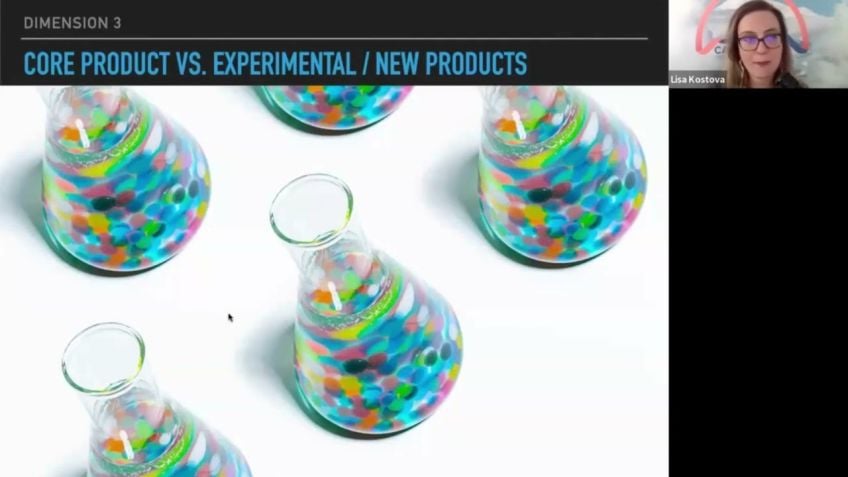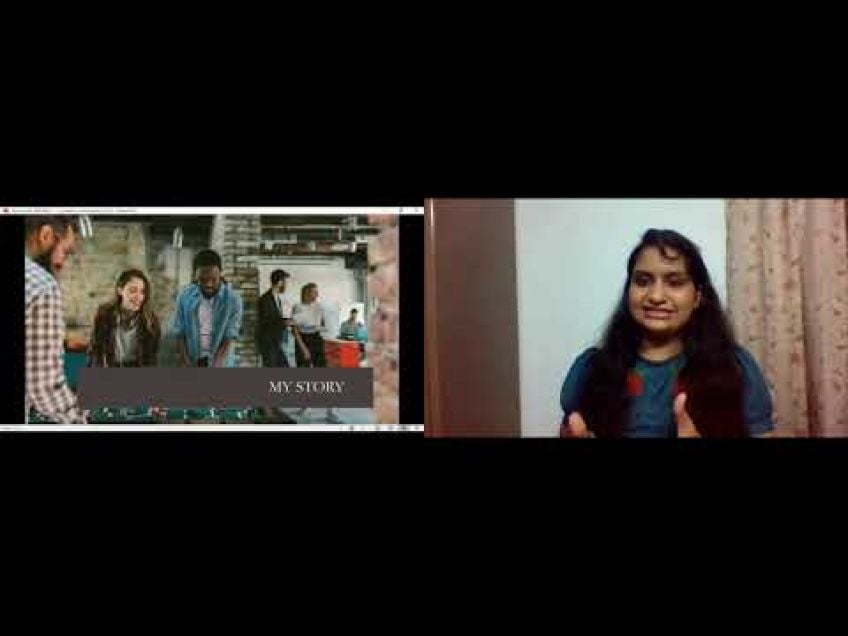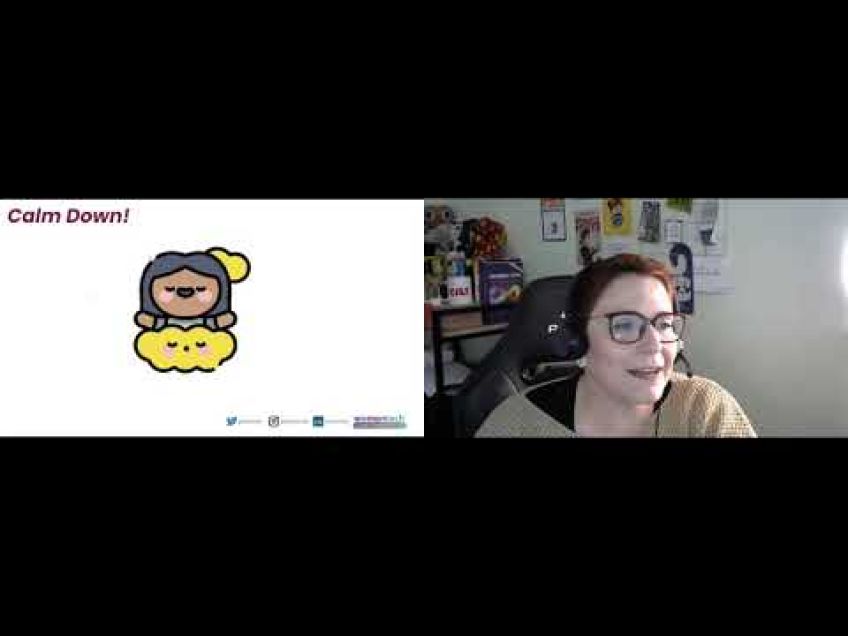3 reasons to ignore job qualifications and have the confidence to apply by Minami Rojas
Master the Art Of Career Planning 101
From identifying your goals and engaging in self-reflection, to saying ‘yes’ to new opportunities, planning your career can shape your future in more ways than you might think. In this post, we will delve into different aspects of career planning and bring you closer to attaining the career you've always desired.
Why Is Career Planning Important?
In a lifetime, the average person will spend about 90,000 hours working. That equates to roughly a third of our lives. But have you ever considered how much of that time we invest in planning our career? If you spend just one hour a month planning your career, this equates to a mere 0.6% of your working time. This discrepancy is one reason why career planning is so critical - it merits an adequate chunk of our time for planning, especially when we’re committing so much of our lives to work!
Speaking Out Loud
Once you've written down your must-haves and career goals, it's time to talk them through with others. Whether it's with friends, peers, managers, or your professional connections, communicate and discuss your plans. It’s important to note that networking and speaking about your career plans are not just confined to extroverts. You’ll find networking especially beneficial when you reach the job searching stage - you're ten times more likely to land a job through a referral than a cold application.
Apply For Jobs With Confidence
When looking at job descriptions, remember that the role title can greatly vary between companies. The focus should be on the responsibilities of the role – make sure they align with your career goals and necessary skills. Try to avoid becoming overwhelmed with the qualifications and requirements listed - these are often more flexible than they appear. And, remember, women are 16% more likely to get hired after applying for a job and 18% more likely to get hired for ‘stretch’ positions (roles they believe are slightly above their current capabilities).
Say Yes to Opportunities
Once you've completed your career planning and are actively job hunting, remember to lean into the discomfort when it comes to new opportunities. Embrace the uncertainty and the opportunity for growth, and don’t hesitate to take on challenges that feel bigger than you. The worst-case scenario is simply a 'no', but without trying, you would never know the outcome. Just say yes!
The Four-Step Career Planning Process
In summary, the career planning process can be condensed into four crucial steps:
- Know your must-haves: Block your time, write them down, and refer back to them when looking at potential jobs.
- Speak it out loud: Discuss your career plans with friends, peers, managers, and your professional network.
- Apply for the job: Focus on the responsibilities rather than qualifications and requirements, which can often be flexible.
- Say 'yes': Don't shy away from discomfort, view it as an opportunity for growth, and be open to new opportunities.
Remember, career planning is an ongoing process, so allocate the necessary time to evaluate your goals and stay open to new opportunities. It's your career, and you have the power to shape it however you wish!
Video Transcription
Awesome. So I got confirmation. Everyone can hear me and see my slides. So, since it's time, why don't we just go ahead and get started. Hi, everyone. I am Minami Rojas. I identify as she her today. We're just going to be talking about career planning 101.Good morning, good evening, good afternoon, wherever you are. Uh Thank you so much for joining. All right. Um My goal is to finish this in 15 minutes. So we have some time for Q and A. So if you want to put that in the chat or the Q and A section, I'll go back to that at the end of it. Um And we can go through those together, but a little bit more about me. Hi, I'm Miami. I'm born and raised in California. I am a dog. Mom to Lucas. Is this little bump that you see in this picture with my partner, Chris. Um Over the last 10 years, I've grown my career in tech focusing on B to BS A. Uh so have owned online revenue from companies like Google Page your duty and now lead growth and marketing at moocs Soft. Um Things that I love to geek out about. So if you like to geek out about these things, connect with me, please. Um Data, data analysis, building really cool user journeys and creating awesome teams and so happy to chat with everyone today. Really looking forward to connecting with all of you in the future.
So as a self proclaimed data nerd, uh let's first start with how many average hours do you think a person spends working in their lifetime? I have an eye on the chat. But if you have any idea of how many hours you think we spend working in a lifetime, feel free to throw it in there. Um I was shocked when I did the research on this. Uh Yes, a third of our lives, Katie is correct. 30% of our lives and that translates into about 90,000 hours. 90,000 hours is how much we spend working. Now, how much time do you think we spend actively career planning, which is deciding what we want to do those 90,000 hours? Um Let's say you spend one hour a month career planning, right? Um That would actually only equal to 0.6% of the time. And this is why career planning is just so important. We spend so much of our lives at work. Let's put the appropriate time planning on what we actually want to do with all that time. All right. Uh And then secondly, career planning is not the same as job searching. Uh, career planning is an ongoing activity that you'll come back to time and time again throughout your life. It will change, the things you want will change. But it's a great process to think about what you want to do, how you're going to accomplish it.
And I see job searching as these little dots along the pathway here on the image. Uh Well, you'll go through that at periods of time. The career planning is going to carry you through all of it. Um I saw a really funny quote on Instagram yesterday that made me laugh out loud and also made me think of this. It was don't wait until you're hungry to decide what you want to eat. So don't wait until your job searching to start career planning. Cool. So what are we gonna talk about today? Career planning 101. How do you do it? What do you do? Uh It's four sections that we go through. The first part is knowing your must haves. The second part is speaking it out loud. The third part is applying for the job and then the fourth part is saying yes. So starting out with know your must haves uh step one block, block your time. We just went over one hour a month is less than 1% of your working time. You can afford it. I like to block uh the last Friday of every month like an hour on my calendar, two hours at most. Uh So I don't have anyone else blocking over that uh and spend time here because it's really important to make time for yourself here. Uh The second step, uh step is write down self reflection. And so when you think about all the different guides and worksheets out there, there's so many good ones and I'll share this deck in the chat after and I link them all in the notes.
But the really simple one to get started that I've really helped kind of guide me along. My career is just answering three goals. So, first starting with, what's your long term goal in the next 2 to 5 years, what is the role title or responsibility that you want to grow into? And a really great way to think about it is either imagining someone that, you know, that's doing the job that you're like, that might be a cool job, maybe I want to do that or it might be, you know, looking on linkedin, seeing mentors out there and being like, ok, they seem to have a really cool job.
How do I get there and identifying what that 2 to 5 year vision is uh from there, you'll go backwards into uh all right. So what's my medium term goal? What skills do I need to learn uh in the next year or so? That's gonna set me up for that long term goal. And this is where you're starting to do this, like gap analysis of like, if I want to be that person in 2 to 5 years, what are they doing today that I don't do today? And I need to learn somehow and identifying what those are. And then once you have that identified, you can come back into short term goals, which then says, OK, what kind of projects can I pick up now? What kind of volunteer work can I do? What can I raise my hand for at work? That will get me that experience? So that when you are getting to the point where you're like, I wanna grow into that role, that experience is already on your resume and you are solid. So this is one of my favorite uh self reflection guides. There's a couple other ones that are linked again, I'll share this deck. So you guys all have all of them. Um So once you have where you want to go, I think the other half of that is knowing your must haves and that's vitally important to help filter down your career planning steps.
And so, you know, your must haves if you've ever gone through the house buying process, which is terrible. Um Your must haves are like, what are your absolute, I must have this in the so I won't buy it uh versus a nice to have. So your must have is a tiny list. I like to keep it around three, your nice to haves is forever long. Um And this will change as you grow in your career. So if I think about when I was leaving Google, uh and I was looking for a job, uh my must haves look like this. The first one was no commute. Uh I commuted for three hours a day for five years. I was like, I do not want to commute any longer. The second one is I wanted an opportunity for rapid growth. I wanted to join a company that was rapidly growing. Uh So I could grow with it. And then the last one was that I wanted growth in my title. It's something that I knew that I was doing this intersection of sales marketing and product and an area that I saw growing in the market, but I wanted it in my title so I could build it into my resume.
Um What's ironic is how I found my job at Pager Duty after Google started with that first must have um because I didn't want to commute. I just pulled up Google Maps. Looked at the little area around my apartment was like what companies are around here, found Pager Duty. They were seven blocks away, looked at their website, found a growth career, a growth job description applied and ended up getting it. And so I had a seven minute walk to work while I was at Pager Duty. And so hilarious how that happened. It's a true story. Uh But this is why must haves are so important to write down. Uh And then lastly come back and repeat. Uh if I look at my must haves now, they're a little bit different. Uh So 34 years later, my must haves look like this. Uh The commute, no commute stuck. I definitely love working from home. I'm a remote first person. The second must have for me is great benefits. Uh Parental leave is really important as my partner and I are thinking about having Children and moving into that phase of life. And then the last one for me is passion for the product space. That's what drives me in my job and must haves are great to confirm you're at the right company as it is for me or understand.
OK, maybe the company that I'm with doesn't really have a couple of the things that I really want and it helps you pave your way into understanding what's next. All right. So now that you've done your self reflection, you've written it down, uh You have a little bit more understanding of what you're looking for. Then next part of it is speaking it out loud. Uh Career planning is awesome when you do it alone. That is pivotal, but it is so much stronger when you do it with other people. Um I am an introvert and so networking has always been terrifying for me and I never really understood how you're supposed to talk to strangers and meet with them. And so I grouped uh this into four different groups of people that helped me take baby steps towards talking about my career with other people. And so the first one is uh friends we all talk about and gab with our friends about how terrible our day was a big project that we got put on something we're excited about. Talk about your career, we talk about your must have ask them what they want to do next and compare notes because your friends may be like, hey, you really enjoy this one thing is that a must have for you or hey, you really hate this one thing is that everyone must have for you.
Um And they are really great guiding post in being an insight for you of how you're thinking about your career. The next group of people is peers and so stay connected with all coworkers, uh People that were, you know, coworkers turned friends, stay connected with them. Uh especially as you guys part ways to other companies. Uh I actually got dinner with a couple of good friends from Pager Duty this week and it's just so nice to talk to people who understand what you do have been there before and now are doing it at a different company, compare notes, compare projects, all of those things. They are a great sounding board. Um And this isn't the doesn't have to be a lot of work. Uh I had someone that I was really close to in Toronto, uh from pager duty and intermediary until I was able to bring her to Moocs Soft. We actually just caught up, you know, 30 minutes on the calendar every other month. And it made me so happy to see that on my work calendar that I was catching up with her. So book the time, you know, follow up at the time and connect with your old coworkers. The third part of this is talking to your manager. And so if you work at a company who's proactive about career planning and they already schedule career conversations with you. Awesome.
If not set the time with your manager, if you already have one on ones with them, it's a really easy suggestion be like, hey, once a quarter, I'd love to just talk about career with you. Um And this is just getting insights from them of how you're thinking about that long term goal, medium term goal, short term goal, your manager is your champion within the company. And so their job is to grow you and keep you at that company. And so what they have great access to is short term projects or medium term, you know, skills that you can work on to get to your long term goal. Uh you know, don't be afraid if your long term vision is like, I want your job manager or I want your job, manager's manager. I've said that before. Plenty of times. If some, if someone on my team said that to me, I'd be like, so excited. I know exactly how to get you here. Uh And that's our job as managers. So definitely schedule career conversations with them. And then last, but not least connect with like five people on linkedin. I can obviously see in the chat. So many people putting their profiles there connect with people. Uh make that connection, say hi, find like uh things that you're excited for. Uh If you think connecting is a little bit too scary.
Another great way to do it is just engage with someone's posts or comment on something or share something and just open the door that way. Um linkedin is a great platform for this, so definitely do it speed up a little bit. Um And this all pays off. So when you get to job searching, you're 10 times more likely to get a job through a referral uh than uh cold applying. And so all of this speaking and out loud really helps when you get to the job searching port. All right. Now, we've reached the job. Um I saw someone in the chat earlier say this, I believe it's already passed now. But um linkedin did research and women are 20% less likely to apply for jobs than men. Uh What we do is we look at these job descriptions, we get caught up in the details and we say, I actually don't think I'm the right fit instead of leaning in and be like, no, I can knock these things out of the water and then just applying. And so what I like to do when I look at job descriptions is remember that and what's important also to know is that titles like director of Marketing, that could mean anything in a different company that could mean the same thing as terms of responsibilities of what I'm doing today.
It could be a couple levels up, it could be a couple of levels down. So focus on the responsibilities area of the job. Find the similarities of what you're doing today uh in your experience and find the transferable skills and make sure that the responsibilities also reflect what you want to be doing. What's in your short medium long term, what's in your must have like does that all show up there?
Because that is what you should be focusing on, don't pay as much attention to the qualifications, especially like X plus years required or must have experience with this tool or must have experience like in this one, managing social media pr website content, se os em as a hiring manager many times, I'm looking for someone who can come in and do the job, the responsibilities and the qualifications are just a cursory guideline.
Um And I think it pays off so women are 16% more likely to get hired after applying for the job and 18% more likely to get hired for stretch jobs. And so the worst that happens when you apply for a job is silence, just throw the resume in there, look at the responsibilities and just apply for that job. Ok. And then lastly say yes. Um, you know, there's that feeling in the pit of your stomach sometimes when you're like, oh crap. Can I do this? I definitely had that feeling when I entered this job that I have today. It was a lot of new news for me. It was the first time on an executive team, first time leading an organization, first time building a team from ground up. And I was like, I don't know if I could do this, but you can and that feeling of discomfort is actually where growth comes from. Um And so if you're in the matrix, think about it as like blue pill or red Pill. Take the red pill. Um or if you are a Schitt's Creek fan like myself, you can channel your inner Moira and you know, sometimes in life and love risks must be taken. So just say yes, take the risk. All right. So blew through that because it's a short session.
But a summary here of career planning is just four sets. Know your must have block your time, write them down, uh speak it out loud then talk to your friends network with your peers, schedule time with your manager, talk to people about it. They will be your army when you get to job searching and then when you're applying for the job, focus on the responsibilities, not the qualifications use your must haves use your plan, use your network to find those jobs and just apply the worst that can happen again is silence and lastly say, yes, lean into the discomfort.
We know none of us love it and all of us think we can't do it but you can do it. Uh And it will be awesome. So thank you for joining my session. That's all I had. Um But happy to answer any questions. Let's see. Can I get over here any questions? Feel free to throw them into the chat? Um And I will actually also throw the deck in the chat now too. So if you guys want access to all of the links um in the notes section, you'll find the links to all of the data that we had as well as different guides that you can use. Um You know, a lot of different things that you can have in the shit script. Um But yeah, if there's any questions, you know, throw on the chat, I'll hang out for five minutes. Um and also feel free to connect with me on linkedin. Always happy to chat. Uh You know, grab 15 minutes, learn a little bit more about you, see how I can help? Um Yeah, cool. So I'll hang out for five minutes. If there's any questions, if not, then uh Thanks so much for listening guys. Let me stop sharing my screen. Oh, how to make your resume noticed? What's your advice? That's a great question. Thanks, Celine. Um So as I'll speak as a hiring manager. So what do I notice uh in a resume?
The first part is that it's uh really clean and uh I would say two pages Max. And so uh while you have a lot of experience, the, your ability to summarize that into 1 to 2 pages actually says more to me than if you have five pages of uh resume because I will not get through all of that. And so two pages max, um I also really love a section that says uh at the top, a summary of what you are and what you're looking for. So a little bit about your experience, what you're excited about and your skills that helps me at one glance, say cool, I know a little bit more about what you're doing. Um And actually, you know what, uh I can pull up my resume and let's see, uh We can kind of go through it. Uh I like to keep these updated. Uh Just so uh I'm actively doing the work of reflecting how am I doing in my career? Are we doing what we want? Um et cetera. So, uh things that I like about resumes, uh is what I said, you know, 22 pages max. Um I'm, I can't, I'm not saying my resume is awesome.
I've seen way better resumes, but the way that I think about it is first doing a little about me section. So really quick summary of, you know, who are you, what have you done? What are you passionate about and skills that you have? Uh And that really helps separate, you know, when I am a hiring manager, glance at your resume, get a sense of you before you get into the details of like what have you done at every company? Um And then, you know, what does that look like? The other thing that I think is important is calling out numbers and impact in your uh resume experience. And so anywhere that you can put, you know, you uh decreased if you're in support, decreased customer support tickets by 10% with a new process or you had a great, you know, 100% C A or something like that, that stuff is all really helpful. Um What about personal interest in the resume for getting to know? Uh I think it's, it's good. I wouldn't put too much in there. So I just have like one sentence about what I like to do. Um It's more important to understand like, what are your skills and how you talk about it. Uh I think your personal interest will come out when you actually speak to people. Uh Thank you for someone pinning the deck. Um As a minority woman.
How did you deal with saying yes. Uh That's also a great question. Um For me, I just use it as fuel. Uh I think that like I'm gonna say yes to more and as much as I can and fight for my s and so I think it's important to always be pushing for the next level to the next job pushing and being the fire for yourself because you may not find as a minority woman, someone championing for you.
So you have to remember that like you can be your own fuel, you can be your own fire and the worst that you get is a no. So just keep pushing. Um Can you quickly go back over the reflection part, Tammy? We only have one minute so I can't. But if you just connect with me, I'll get happy to just jump on other zoom with you and go over that in like 10 minutes. Um So feel free to connect with me, Tammy and happy to go over that reflection part. Uh mhm And I think those were all the questions but yeah, sorry. I was trying to answer those so fast. Uh But please, you know, if you guys have any questions connect with me, reach out to me. Uh The deck is pinned here. Thank you so much. Share my linkedin link. No, that would be really helpful. Uh Let me do that real quick. Um Sorry, my hop in is on a different screen. Here's my linkedin. It's under my maiden name, so connect with me. Uh and I would love to chat. So thank you guys so much. Have a good rest of the day. Uh I hope to see you guys in another session. Thanks everyone.





